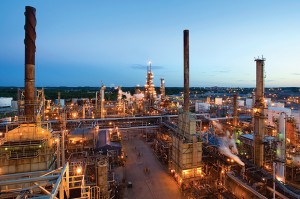Future changes affecting the marine bunker fuel market will impact refinery planning. A recent report from Neste Oil noted a $200 to $300 per metric tonne difference between low-sulfur gas oil and heavy fuel oil. This differential encourages many refiners to consider upgrading as much heavy fuel oil as possible to low sulfur fuels, such as ultra low sulfur diesel (ULSD) instead of bunker fuels.
Bunker fuels, the vernacular for marine distillates, historically originate from low quality distillate recycle streams that are unsuitable for upgrading to diesel fuel or other low-sulfur products. In a lot of cases, the feedstock for bunker fuels originates from the refinery crude distillation unit (CDU), primarily atmospheric and vacuum distillate unit bottoms. No doubt, a larger percentage of these streams will need to be upgraded to much lighter products as the bunker fuel market ostensibly disappears.
The current narrative seems to be that future requirements for clean fuels in the marine transportation sector will make refiners adjust their configuration and complexity accordingly, with expansion of delayed coking capacity outside the U.S. and an increase in overall hydroprocessing and resid desulfurization capacity.
The International Maritime Organization’s (IMO) MARPOL Annex VI sets out a series of regulation impacting international marine bunker fuels, These new regulations center on limits for emissions of nitrous oxides (NOx) sulfur oxides (SOx) and volatile organic compounds (VOCs). In terms of timelines, implementation of the IMO global specification changes between 2020 and 2025 will understandably affect global oil markets and near elimination of bunker fuels. However, just as the current low crude costs are benefiting the consumer and other major industries outside the oil and gas industry, one can argue that dirt cheap bunker fuel is the only thing currently keeping container shipping lines profitable, as noted in a September 23 editorial in GCaptain.com and based on recent analysis from Drewry Maritime Research.
While the upstream oil and gas industry is being decimated by low crude costs, the refining industry is still profitable but nonetheless concerned about going forward with major investments. With about a five-year lead time required for upgrade and construction of refining facilities, how can major capex investment decisions be made when certain regulations, such as for bunker fuels, carbon capture, etc. are still under review? Will bunker fuel as we know it disappear?
What will be the wider impact of increasing world demand of marine distillate fuel on the overall transportation market including, availability of jet fuel and diesel? How will this paradigm influence delayed coker investments vs the need to steer investments towards increased hydrogen production and resid desulfurization/deep hydrocracking. What are the advantages and disadvantages of both options?
These issues will be discussed on a monthly basis in the RefineryOperations.com Real Results Forum, culminating in the convening of the Operator’s Forum during the May 2016 RefComm Galveston 2016 Refining Conference.
In general, it is expected that the paradigm shift in the bunker fuels market toward clean marine diesel fuels will benefit coking-based refineries with the capability to convert heavy fuel into distillate. Coking refineries are able to use medium to heavy sour crude as their primary input. These refineries also have the highest light clean fuel product yields and volume gains, compared to other refinery configurations. As of October 2015, there are approximately 675 refineries operating throughout the world approaching 99 million bpd in throughput capacity.








Leave a Reply
You must be logged in to post a comment.